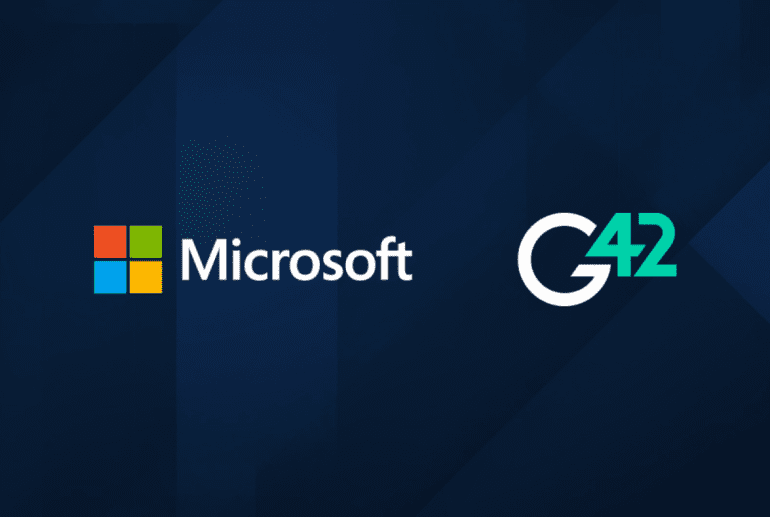- Microsoft’s agreement with UAE-based AI firm G42 hints at potential transfer of crucial U.S. chips and AI technology overseas.
- Concerns arise regarding national security implications and the adequacy of safeguards in the deal.
- Legislative efforts underway to address regulatory gaps in the export of AI technology.
- The partnership aims to extend AI technology into regions where individual efforts might fall short, exemplified by recent collaborations in Kenya.
- Measures such as the “know your customer” rule aim to ensure responsible technology usage and mitigate potential risks.
- Approval from U.S. Commerce Secretary Gina Raimondo is pivotal, shaping the trajectory of the deal.
Main AI News:
Recent reports shed light on Microsoft’s notable agreement with the United Arab Emirates-backed AI firm G42, suggesting potential implications for national security. In a recent Reuters interview, Microsoft President Brad Smith hinted at the possibility of exporting advanced chips and tools, a move that drew caution from a senior Republican congressman.
Smith outlined that the agreement, though its specifics are emerging for the first time, might evolve into a second phase involving the exportation of critical AI components, such as model weights, which are pivotal in determining the potency of AI systems. However, Smith emphasized the absence of a definite timeline for this phase.
Given the recognized national security risks posed by AI systems, particularly in facilitating the development of hazardous weaponry, the Biden administration mandated comprehensive disclosures from major AI system manufacturers to the U.S. government last October. Notably, any progression in the Microsoft-G42 deal would necessitate approval from the U.S. Department of Commerce, signaling the gravity of its potential ramifications.
While Microsoft executives assure that the agreement includes safeguards to shield their technology and prevent its misuse by Chinese entities, doubts linger among some lawmakers regarding the adequacy of these measures. The closed-door nature of the negotiations between the two private entities has raised concerns, prompting calls for more transparency and congressional oversight.
In response to these concerns, efforts are underway to enhance regulatory frameworks surrounding the export of AI technology. However, existing gaps in U.S. laws underscore the challenges in keeping pace with rapidly evolving technological landscapes. Legislators are actively pushing for legislation granting authorities greater control over the export of AI models, reflecting the urgency to address regulatory deficiencies.
Amidst these developments, Microsoft emphasizes the importance of facilitating the global movement of American technology while ensuring stringent security measures. As discussions unfold, the focus remains on establishing a robust regulatory framework to safeguard sensitive technologies from potential exploitation.
Looking beyond the UAE, the Microsoft-G42 partnership aims to extend AI technology into regions where individual efforts might fall short. Notably, collaborations such as the recent deal in Kenya exemplify the shared objectives of the two entities. However, the absence of a direct agreement between the U.S. and UAE concerning the transfer of sensitive technologies raises questions about oversight and accountability.
As negotiations progress, crucial details, including measures to protect AI model weights, require further deliberation. Microsoft explores various strategies, including physical separation within data centers, to enhance security. Ultimately, the evolving regulatory landscape is expected to shape not only this particular deal but also broader policies governing the transfer of AI technology.
Under the terms of the agreement, G42 commits to adhering to regulatory requirements and export control regulations, emphasizing a strategic alignment with U.S. partners. Measures such as the “know your customer” rule aim to ensure responsible technology usage and mitigate potential risks. Additionally, provisions allowing Microsoft to enforce penalties underscore the commitment to compliance and accountability.
The path forward hinges on the approval of U.S. Commerce Secretary Gina Raimondo, whose stance will influence the trajectory of the deal. While informal discussions suggest a cautious approach, the overarching goal remains to strike a balance between facilitating innovation and safeguarding national interests. As technology continues to transcend borders, the imperative to enact robust regulatory frameworks becomes increasingly evident, ensuring the responsible advancement of AI technology on a global scale.
Conclusion:
The Microsoft-G42 deal underscores the delicate balance between fostering technological innovation and safeguarding national security interests. As regulatory frameworks evolve to address emerging challenges, businesses must navigate complex geopolitical landscapes to ensure responsible and secure global technology transfer. The outcome of this partnership will not only shape the future of AI collaboration but also influence broader market dynamics, highlighting the imperative for proactive engagement with regulatory authorities and stakeholders.

